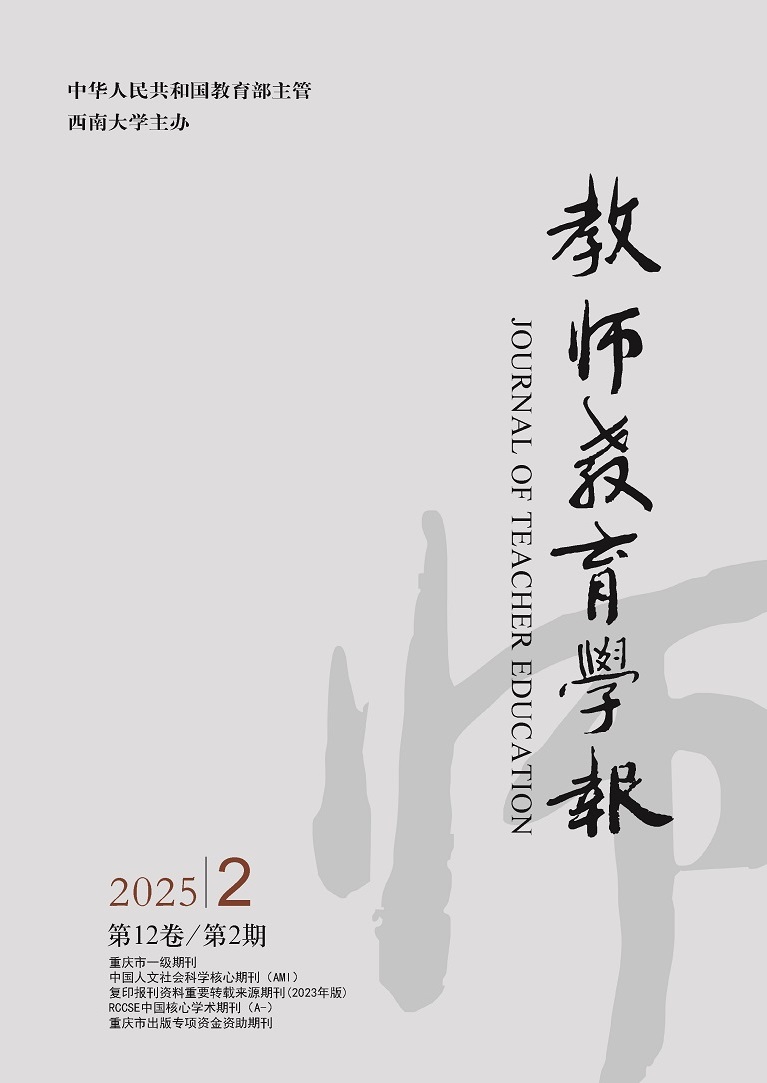WANG Huanfang1, YAN Jianzhang2. Elitism Recruitment: The Key Points of Elitism of Teacher Education[J]. Journal of Teacher Education, 2018, 5(4): 87-94. doi: 10.13718/j.cnki.jsjy.2018.04.012
| Citation: |
WANG Huanfang1, YAN Jianzhang2. Elitism Recruitment: The Key Points of Elitism of Teacher Education[J]. Journal of Teacher Education, 2018, 5(4): 87-94. doi: 10.13718/j.cnki.jsjy.2018.04.012
|
Elitism Recruitment: The Key Points of Elitism of Teacher Education
-
1. School of Teacher Education, Shanxi Normal University, Linfen 041000, China;2. College of Teacher Education, Shanxi Normal University, Linfen 041000, China
More Information
-
Received Date:
20/01/2018
-
-
Abstract
Against the background of popularization of higher education, elitism teacher education is a teacher education concept with more characteristics of times and a teacher education model of higher level. It has become the new trend of international teacher education development and the new demands of China's teacher education development. Elitism recruitment, as the prerequisite of elitism teacher education is key in improving teacher education quality and plays a fundamental and critical role in teacher education. There are three questions in elitism teacher recruitment:"Recruit whom? Who can recruit? How to recruit?". That means we must make clear the recruitment targets, the recruitment subjects and the means of recruitment. The effective solutions can provide the possibility and conditions for improving teacher education quality and realizing elitism of teacher education.
-

-
References
|
[1]
|
习近平同北京师范大学师生代表座谈时的讲话[EB/OL].(2014-09-10)[2018-01-09]. http://politics.people.com.cn/n/2014/0910/c70731-25629093.html.
Google Scholar
|
|
[2]
|
贺美玲,李晓波.教师教育专业生源质量的现状与思考[J].黑龙江高教研究,2014(7):94-96.
Google Scholar
|
|
[3]
|
邬大光.高等教育大众化理论的内涵与价值——与马丁·特罗教授的对话[J].高等教育研究,2003(6):6-9.
Google Scholar
|
|
[4]
|
黄正平.有好的教师才有好的教育——关于教师教育精英化的思考[J].河北师范大学学报(教育科学版),2011,13(6):65-70.
Google Scholar
|
|
[5]
|
唐科莉.让最优秀的大学毕业生做教师[N].中国教育报,2010-11-23(003).
Google Scholar
|
|
[6]
|
胡艳.当前我国师范专业招生问题及对策探讨[J].教师教育研究,2007(3):29-33.
Google Scholar
|
|
[7]
|
杨晓.90后大学生综合素质培养研究[D].西安:陕西科技大学硕士学位论文,2014.
Google Scholar
|
|
[8]
|
艾述华,陈俊树.新建地方本科院校师范专业生源问题及对策[J].中国电力教育,2009(13):161-163.
Google Scholar
|
|
[9]
|
刘瑞霞.新入职教师从教意愿之质化研究[D]兰州:西北师范大学硕士学位论文,2013.
Google Scholar
|
|
[10]
|
涂艳国,田友谊.高中毕业生报考教师教育专业意愿调查报告[J].教育研究与实验,2005(4):55-57.
Google Scholar
|
|
[11]
|
蒋亦华.本科院校小学教育专业学生从教意愿的调查研究[J].教师教育研究,2008,20(6):62-67.
Google Scholar
|
|
[12]
|
朱旭东.论当前我国教师教育存在的十大问题及其解决途径[J].当代教师教育,2012(3):5-14.
Google Scholar
|
|
[13]
|
高云峰.地方高师师范生就业现状、问题及对策研究——以内蒙古师范大学为例[J].前沿,2015(10):60-63.
Google Scholar
|
|
[14]
|
王烨捷.师范类教育面临"控量提质"[N].中国青年报,2015-10-14(01).
Google Scholar
|
|
[15]
|
徐尹倩.香港教师教育质量保障体系研究[D].金华:浙江师范大学硕士学位论文,2015.
Google Scholar
|
|
[16]
|
陈成志.论马克思主义幸福观的科学性及其认同教育[J].学术交流,2012(3):163-168.
Google Scholar
|
|
[17]
|
叶澜.师范院校应积极投入招生并轨改革[J].高等教育研究,1996(4):14.
Google Scholar
|
-
-
Access History

-






 DownLoad:
DownLoad: